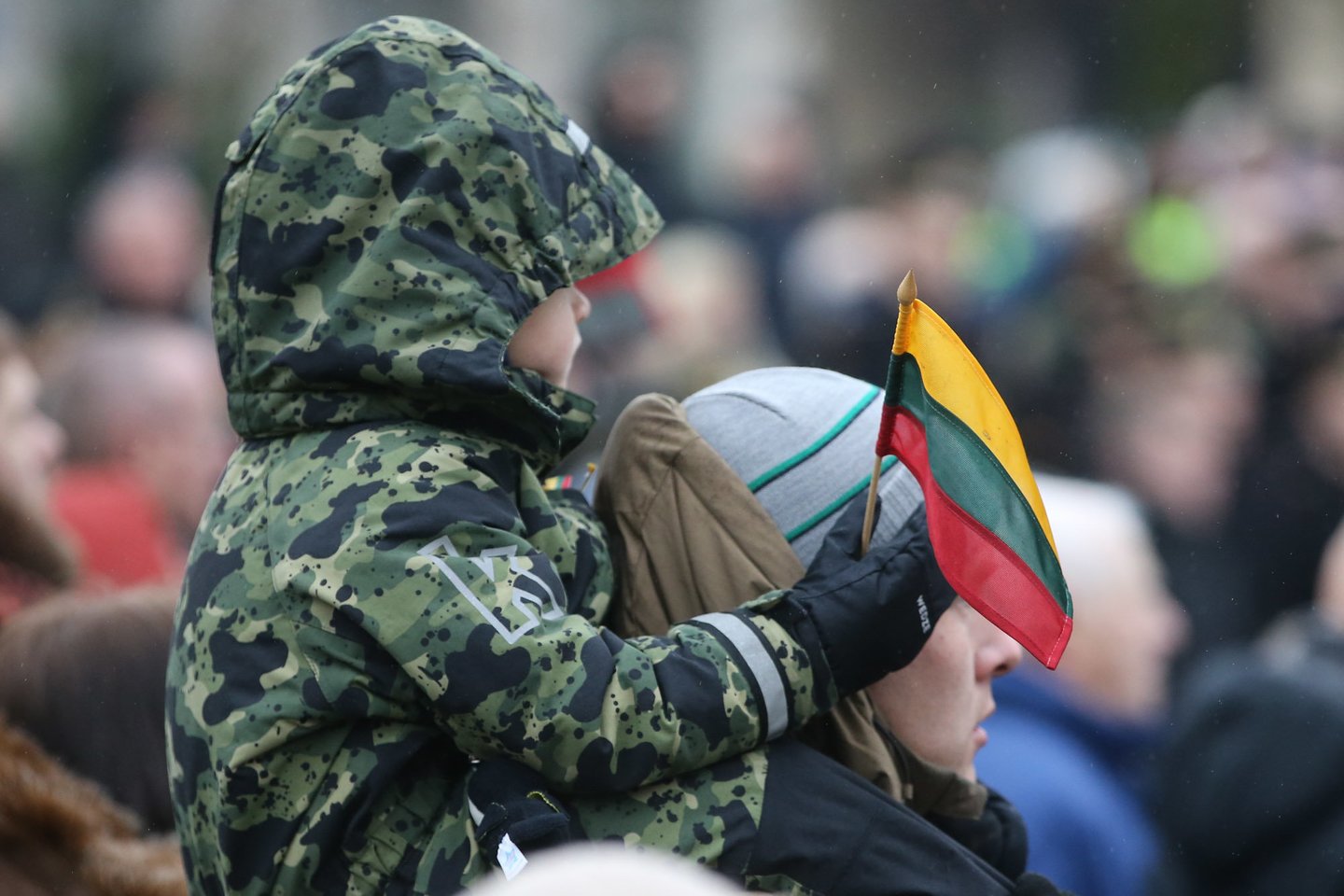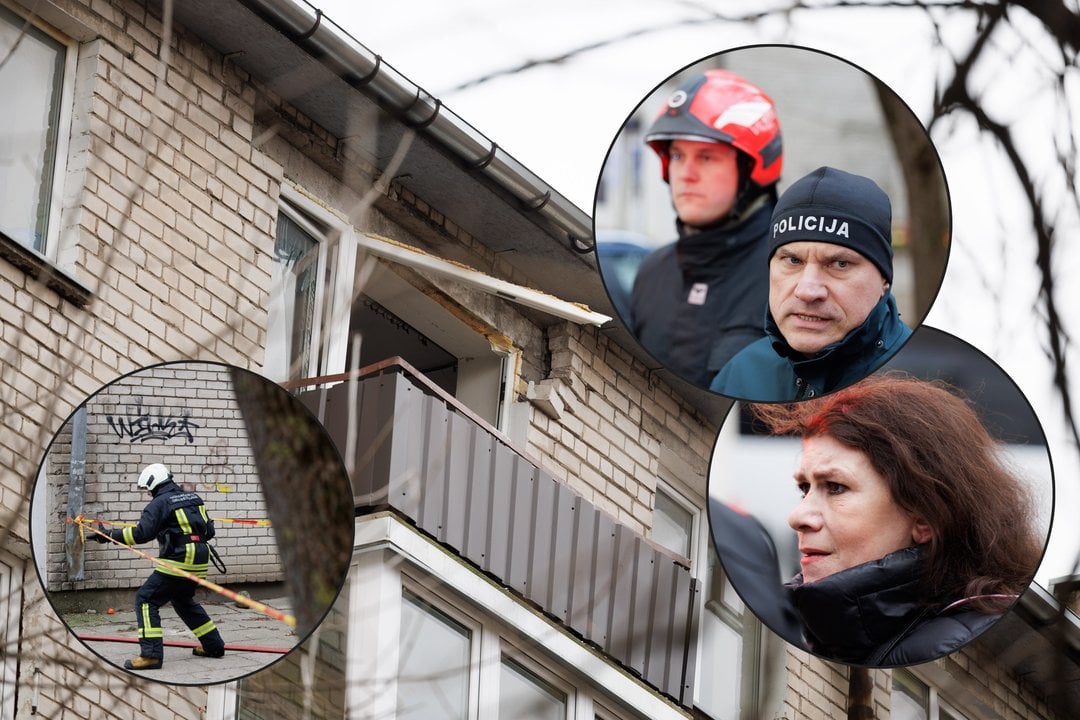The Social Democrats were the most successful in these elections. But, on the other hand, all parties, with the possible exception of the Workers' Party, claim to have performed well or at least do not consider themselves losers.
The Social Democrats had the highest number of votes - 17.45% - and the highest number of council seats - 358 - and even 17 mayorships. This is better than the results of the previous municipal elections.
However, by calling the Conservatives' results a total defeat, the leader of the Social Democrats, V.Blinkevičiūtė, is probably deliberately thickening the colours, even though the main ruling party won only five mayoral seats, six fewer than in the previous elections.
After all, 16.2% of voters voted for the Conservatives - not much less than for the Social Democrats, and the right-wing party won in Vilnius, which has the largest population, which is important in view of the forthcoming parliamentary elections.
Due to the political decisions that annoyed the public and the difficult economic situation, it was to be expected that the voters would, even more, punish the Conservatives more and that the Social Democrats would be even more generous. Thus, victory in the parliamentary elections is by no means guaranteed for the divided opposition.
Of course, local and parliamentary elections are very different, and the way in which people evaluate politicians in their district or city, with little regard for their party affiliation, has a huge impact. After all, the parties delegated as many as 27 members of the Seimas to the mayoral elections, and only one managed to win.
This shows that the parties have not developed strong new leaders in the municipalities, who are popular with local communities and are therefore offering voters MPs who often appear on TV screens.
The fiasco experienced by parliamentarians in Kaunas and almost everywhere else means one thing: voters may even be annoyed by such enticements.
In most cases, the mayors who were in office at the time and who ran again won the elections. They were therefore coveted defectors if they thought of changing party colours. Only the voters of Klaipėda punished the former mayor, V.Grubliauskas, severely for thinking of joining the Social Democrats.
The relative success of the Liberal Movement in electing mayors and the abysmal results of the Freedom Party can be explained primarily by the popularity of local leaders rather than voters' sympathies for the party.
The Liberal Movement far outperformed the Conservatives in terms of mayoral yields and was only behind the Social Democrats. Paradoxically, the Liberals' success was not in the cities, where their supporters seem to be concentrated, but in the provinces.
All four of their mayors elected in the first round were already in office, and all but two of the Liberals who won in the second round are also well-known politicians in their districts.
Will the Liberal Movement benefit greatly from the popularity of local figures in the national elections?
The five mayorships of the Democratic Union "Vardan Lietuvos" (In the Name of Lithuania) can be similarly assessed.
They are former mayors or one of the heads of the municipal administration who were lured into the new party by Skvernelis and his supporters after they split from the Lithuanian Peasant Popular Union (LVŽS).
For the LVŽS, which has been bloodied considerably, eight mayors and 9.2% of the vote is not a bad electoral result, showing that the party traditionally retains influence in the regions.
So even taking into account the differences between the municipal and national elections, a serious warning signal should have been sent to the parties of Freedom, Labour and the Regions.
It is true that the representative of the latter, Ž.Pinskuvienė, who received 80% of the voters' support, won the post of Mayor of Širvintos in the first round, but this is only her personal success.
The "Libertarians" and the "Workers" did not have any mayors at all, and less than 5% of voters voted for them. This threatens that these parties may not be able to cross the parliamentary threshold in the parliamentary elections.
Perhaps the biggest surprise of these municipal elections is that the Lithuanian Poles' Electoral Action - Christian Families Union (PLA-Christian Families Union - LLRA-KŠS) has lost the post of Mayor of Vilnius District for the first time in the whole period of independence, although this decision is still under appeal.
Admittedly, the defeat of the regular winners was also due to the changing demographics of the population of Vilnius District, with a growing number of residents of Lithuanian origin, the vast majority of whom do not vote for the almost openly Polish LLRA-KŠS.
On the other hand, almost all political forces managed to unite and jointly canvass for the Social Democratic candidate R. Duchnevičius, which gave a pretext for the LLRA-KŠS to complain about the allegedly unfree elections.
However, it is likely that the LLRA-KŠS will gradually lose its strong position in the Vilnius region, except in the Šalčininkai district, where the dominance of this political force remains unshakeable, although a party-oriented towards a separate national group is considered to be a complete Soviet remnant in democratic Lithuania.
However, it is difficult to say how the council dominated by Duchnevičius and the LLRA-KŠS will develop at this stage. At the same time, in most other municipalities, major conflicts and disagreements between councils and mayors with wide powers are less likely.
Municipal elections Labour Party Freedom Party Electoral Action of Poles - Christian Families Union of Lithuania (PLRA-KŠS) Lithuanian Social Democratic Party (LSDP) Homeland Union - Lithuanian Christian Democrats (TS-LKD) Democratic Union "In the Name of Lithuania" Union of Lithuanian Peasants' and Greens' Union (LVŽS) Party of the Regions Parliamentary elections.
Source: https://www.lrytas.lt/lietuvosdiena/kriminalai/2023/03/26/news/40-tukst-euru-vertes-rukalu-gabentojai-liko-laisveje-26534573





